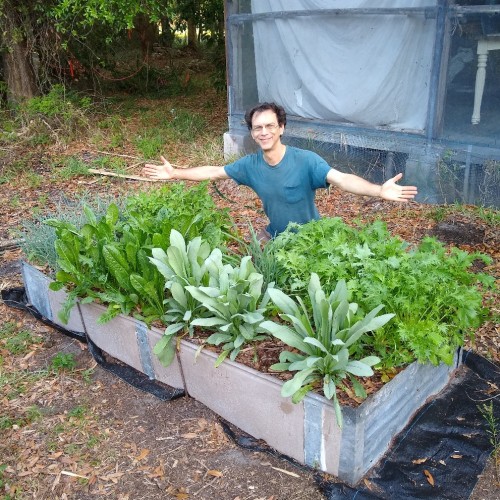Are you dreaming of turning your love for farming into a profitable venture? Starting a small-scale agribusiness from home might be the perfect solution for you.
Imagine growing your own produce, raising animals, or creating artisanal products right in your backyard. Not only can you enjoy the satisfaction of cultivating something from scratch, but you can also tap into the booming market for locally-sourced, sustainable products.
You’ll discover simple, actionable steps to kickstart your agribusiness journey. Whether you have acres to spare or just a small garden plot, you’ll find the guidance you need to transform your passion into a thriving home-based business. Prepare to dive into a world where your backyard becomes a hub of productivity and profitability. Get ready to learn how to make your agribusiness dreams a reality!

Planning Your Agribusiness
Starting a small-scale agribusiness from home can be rewarding. Planning is the first step to success. It helps you set a clear path. Without a plan, you might face confusion. Let’s explore how to plan your agribusiness effectively.
Identifying Your Niche
Find a niche that suits your skills and interests. Think about what you enjoy. Do you like growing vegetables? Or raising chickens? Choose something you are passionate about. It will keep you motivated. A clear niche helps you focus your efforts.
Market Research
Research the market before starting. Know your potential customers. What do they need? What do they buy? This information is crucial. It helps you understand demand. You can also learn from competitors. See what they offer. Find gaps you can fill.
Setting Goals And Objectives
Set clear goals for your business. What do you want to achieve? Goals give you direction. Make them specific and measurable. For example, aim to sell 50 units in a month. Objectives should align with your long-term vision. Write them down. Review them regularly to stay on track.

Setting Up Infrastructure
Starting a small-scale agribusiness at home requires proper infrastructure. It ensures a smooth operation. You need to think about space, tools, and finances. Each element plays a crucial role. Let’s dive into these aspects.
Space Requirements
Determine the space needed for your agribusiness. It could be a backyard, a small plot, or a balcony. Consider the type of plants or livestock. They will dictate the space size. Ensure easy access to water and sunlight. Both are essential for growth.
Essential Tools And Equipment
Gather basic tools for your agribusiness. A shovel, hoe, and watering can are must-haves. Depending on your venture, you might need pots, seeds, or a greenhouse. Invest in quality tools for durability. It saves money in the long run.
Budgeting And Financial Planning
Create a budget for your agribusiness. List all potential costs. Consider seeds, fertilizers, and equipment. Don’t forget utilities like water and electricity. Plan for unexpected expenses. It helps avoid financial stress. Track your expenses regularly. This ensures you stay on budget.
Growing Your Products
Starting a small-scale agribusiness at home is a rewarding venture. Begin by researching suitable crops that thrive locally. Invest in quality seeds and tools to ensure healthy growth.
Growing your products is the heart of a small-scale agribusiness. It’s where your passion meets practicality, and where your backyard turns into a productive hub. Whether you’re cultivating crops or raising livestock, the key is to start small and grow gradually. This approach not only minimizes risk but also allows you to learn and adapt as you go.Choosing Crops Or Livestock
Selecting the right crops or animals is crucial. Consider what grows well in your area and what you love. If your soil is naturally rich and the climate is warm, tomatoes or peppers might be a great choice. If you’re interested in livestock, chickens are manageable and provide eggs that are easy to sell. Look around your neighborhood and see what others are doing successfully—sometimes inspiration is just a conversation away.Sustainable Practices
Sustainability isn’t just a buzzword; it’s a necessity for long-term success. Start with composting kitchen scraps to enrich your soil naturally. Utilize rainwater collection systems to reduce your water bill and environmental impact. Rotate crops to maintain soil health and prevent pest buildup. These practices save you money and help protect the planet. Plus, they can be surprisingly easy to implement right in your backyard.Quality Control And Maintenance
Maintaining quality is essential for your reputation and repeat business. Regularly check your crops for pests and diseases. Are your tomatoes wilting? Maybe they need more water or a change in soil nutrients. If you’re raising chickens, ensure their coop is clean and safe from predators. You might find yourself learning more about chicken behavior than you ever imagined. Set a routine for maintenance tasks, and you’ll find that quality control becomes second nature. Growing your products at home requires effort and passion. Are you ready to turn your garden into a thriving agribusiness?Marketing And Sales Strategies
Marketing and sales strategies are crucial for a small-scale agribusiness. Establishing a strong presence helps attract loyal customers. Engaging marketing tactics can boost your sales effectively. This section focuses on essential strategies for marketing and sales success.
Building Your Brand
Creating a unique brand identity is vital. It differentiates your business from others. Start with a memorable name and logo. Ensure they reflect your product’s quality and values. Consistent branding builds trust and recognition among customers. Share your story to connect emotionally with your audience. This creates a lasting impression.
Online And Offline Marketing
Combine online and offline efforts for maximum reach. Use social media platforms to showcase your products. Post regularly with engaging content. Photos, videos, and stories work well. Establish a simple website or blog to provide more information. Offline, attend local events and farmers’ markets. Hand out flyers and business cards. Personal interactions foster strong customer relationships.
Customer Engagement And Retention
Engaging customers ensures long-term loyalty. Respond to inquiries promptly and politely. Offer promotions or discounts to repeat buyers. Consider starting a loyalty program. Gather feedback to improve your products and services. Show appreciation for your customers. Send thank you notes or small gifts. Happy customers often refer others, expanding your customer base.

Conclusion
Starting a small-scale agribusiness from home is achievable. Begin by researching your market. Understand local demand and choose your niche wisely. Next, plan your budget carefully to manage costs. Invest in essential equipment and quality seeds or stock. Connect with local farmers for guidance and support.
Stay patient and persistent as you grow your business. Learn from mistakes and celebrate small wins. Keep improving your skills and knowledge. Your dedication will lead to success. Enjoy the journey of nurturing your agribusiness.


